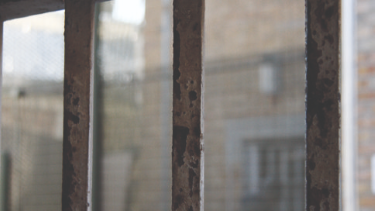Report finds torture victims among detainees being held for "excessively long" periods
Peter Clarke, HM Chief Inspector of Prisons, has today released an inspection report of Harmondsworth immigration removal centre (IRC) at Heathrow.
 The 103-page is here.
The 103-page is here.
The report attracted widespread media coverage, with the Guardian highlighting that the Chief Inspector found vulnerable torture victims were among those being detained, while BBC News noted the report found detainees are being held for "excessively long" periods in "prison-like" conditions.
Harmondsworth is Europe's largest immigration detention facility, holding up to 676 male detainees, and is run for the Home Office by a company owned by the Mitie Group.
In his report, the Chief Inspector found Harmondsworth had made some improvements since the last inspection carried out in 2015 but not of the scale or speed that were required. In some areas, there had been a deterioration.
The Chief Inspector of Prisons stated: "The centre's task in caring for detainees was not made any easier by the profile of those who were held. There was a very high level of mental health need and nearly a third of the population was considered by the Home Office to be vulnerable under its at risk in detention policy. The continuing lack of a time limit on detention meant that some men had been held for excessively long periods: 23 men had been detained for over a year and one man had been held for over 4.5 years, which was unacceptable."
Mr Clarke again recommended that a time limit on the length of detention should be introduced.
The report also found that processes for safeguarding detainees were not good enough and victims of torture were among those being detained. Worryingly, in 9 out of 10 sample of cases examined by the Chief Inspector, the Home Office accepted evidence that detainees had been tortured, but maintained detention regardless.
Mr Clarke found Detention Centre Rule 35 reports, which are intended to give some protection to the most vulnerable detainees, lacked rigour and the reports did not comment on post-traumatic stress disorder or how detention affected detainee health.
While violence was not found to be high at Harmondsworth, the Chief Inspector said violence management processes were weak and a high number of detainees felt unsafe, with many saying a large number of their fellow detainees seemed mentally unwell, frustrated or angry.
Physical conditions were found to have improved since the last inspection, but the environment remained poor overall and many areas were dirty and poorly ventilated. Bedbugs remained endemic, leading to negative effects on detainees' physical and mental well-being.
Staff and detainees said drugs were widely available, and the report found there was no centre-wide strategy to deal with the problem.
Only 58% of detainees surveyed at Harmondsworth said that most staff treated them with respect, well below the average figure for IRCs. Overall staffing levels were low, and both detainees and staff said there were too few officers to support detainees.
On the subject of legal advice, the Chief Inspector was relatively positive, stating: "In our survey, more detainees than at other centres said they had a lawyer. Waiting times for the legal advice surgeries had reduced and were now reasonably good. Detainees could access a wide range of legal, human rights and support organisation websites. Detainee access to the on-site Home Office contact management team was good but less so for the detained asylum casework team. The on-site immigration team was diligent and made commendable efforts to engage with detainees."
In a critical summing up, Mr Clarke said: "The centre had failed to progress significantly since our last visit in 2015. For the third consecutive inspection, we found considerable failings in the areas of safety and respect. Detainees, many identified as vulnerable, were not being adequately safeguarded. Some were held for unacceptably long periods. Mental health needs were often not met. Detainees were subject to some disproportionate security restrictions and living conditions were below decent standards. It is time for the Home Office and contractors to think again about how to ensure that more substantial progress is made."
A Home Office spokeswoman was quoted by BBC News as saying the report made for "difficult reading" and it would lead to changes being made.
The spokeswoman added: "When people are detained, it is for the minimum time possible and detention is reviewed on a regular basis. The detainee's welfare remains of the utmost importance throughout."